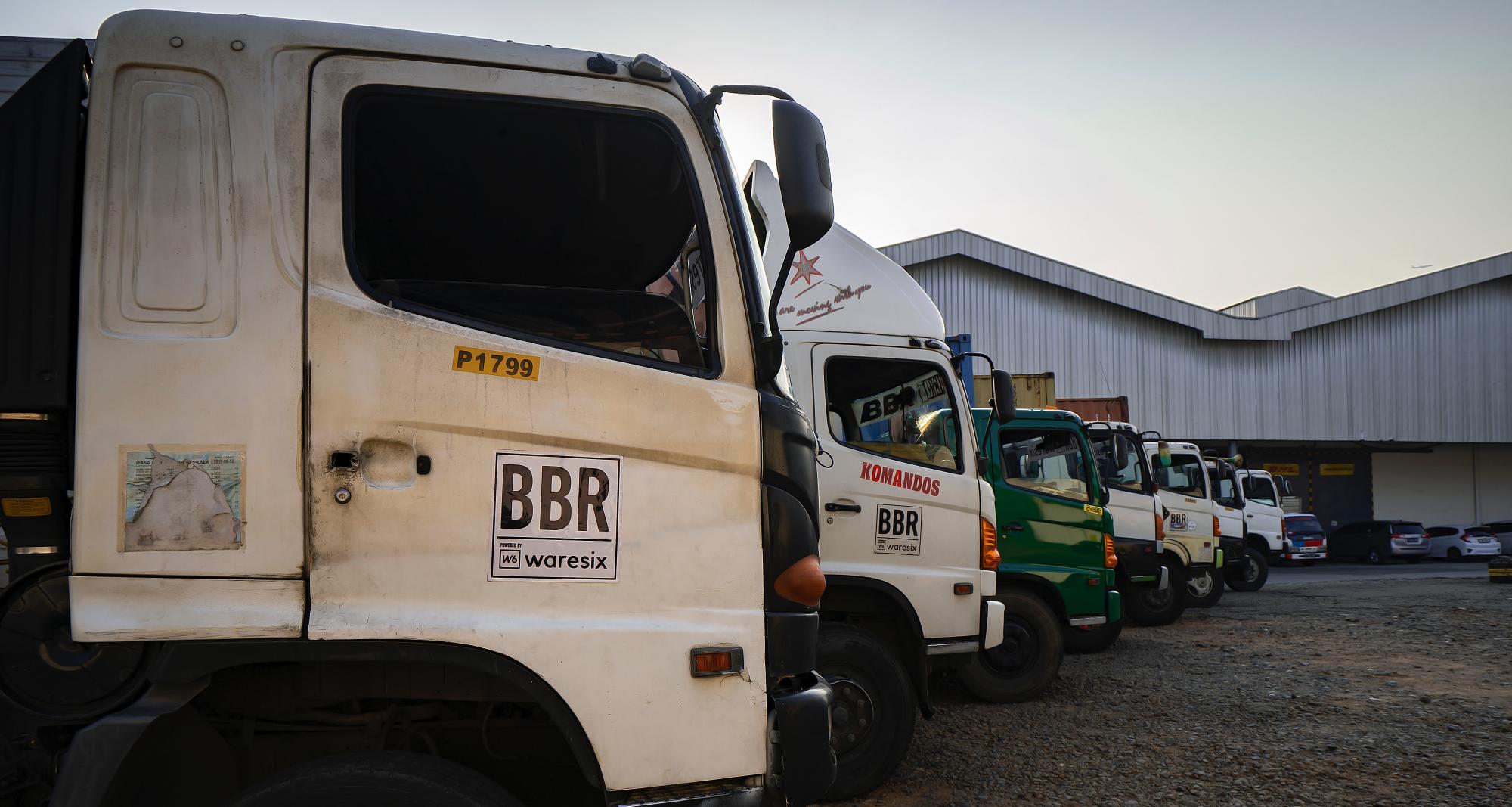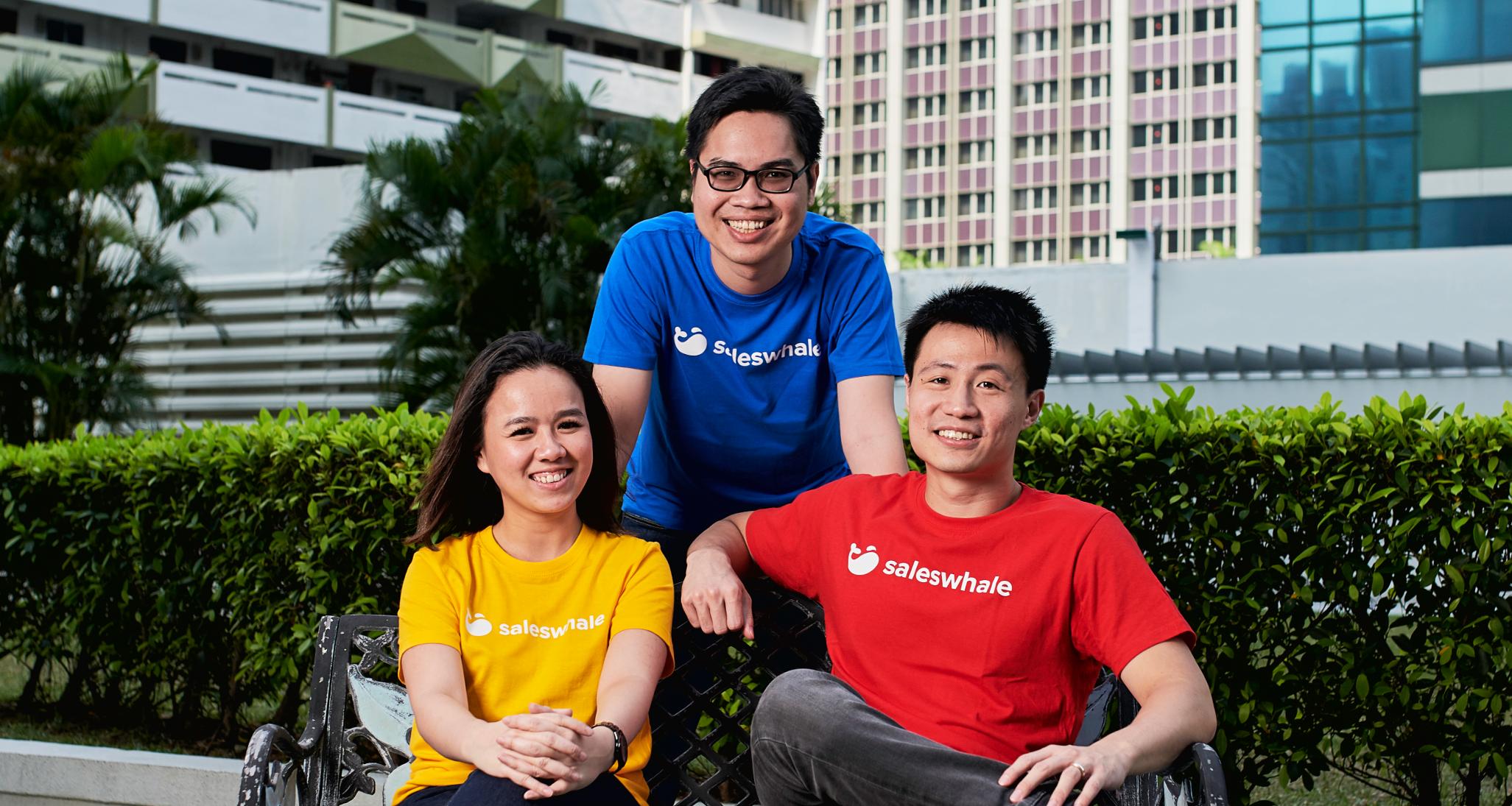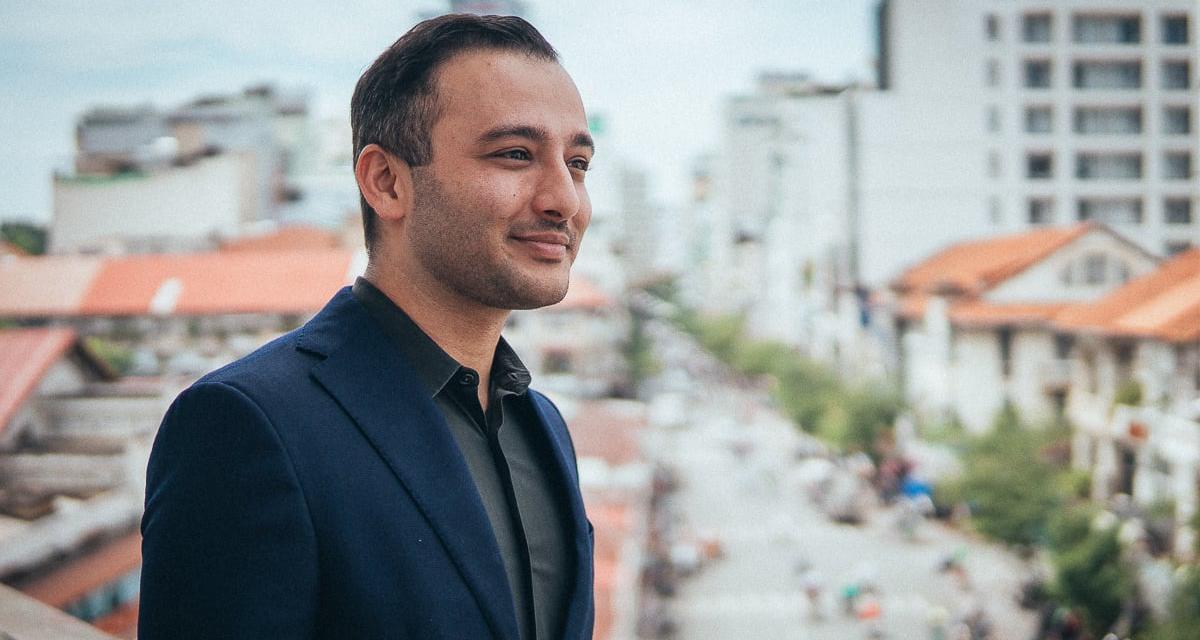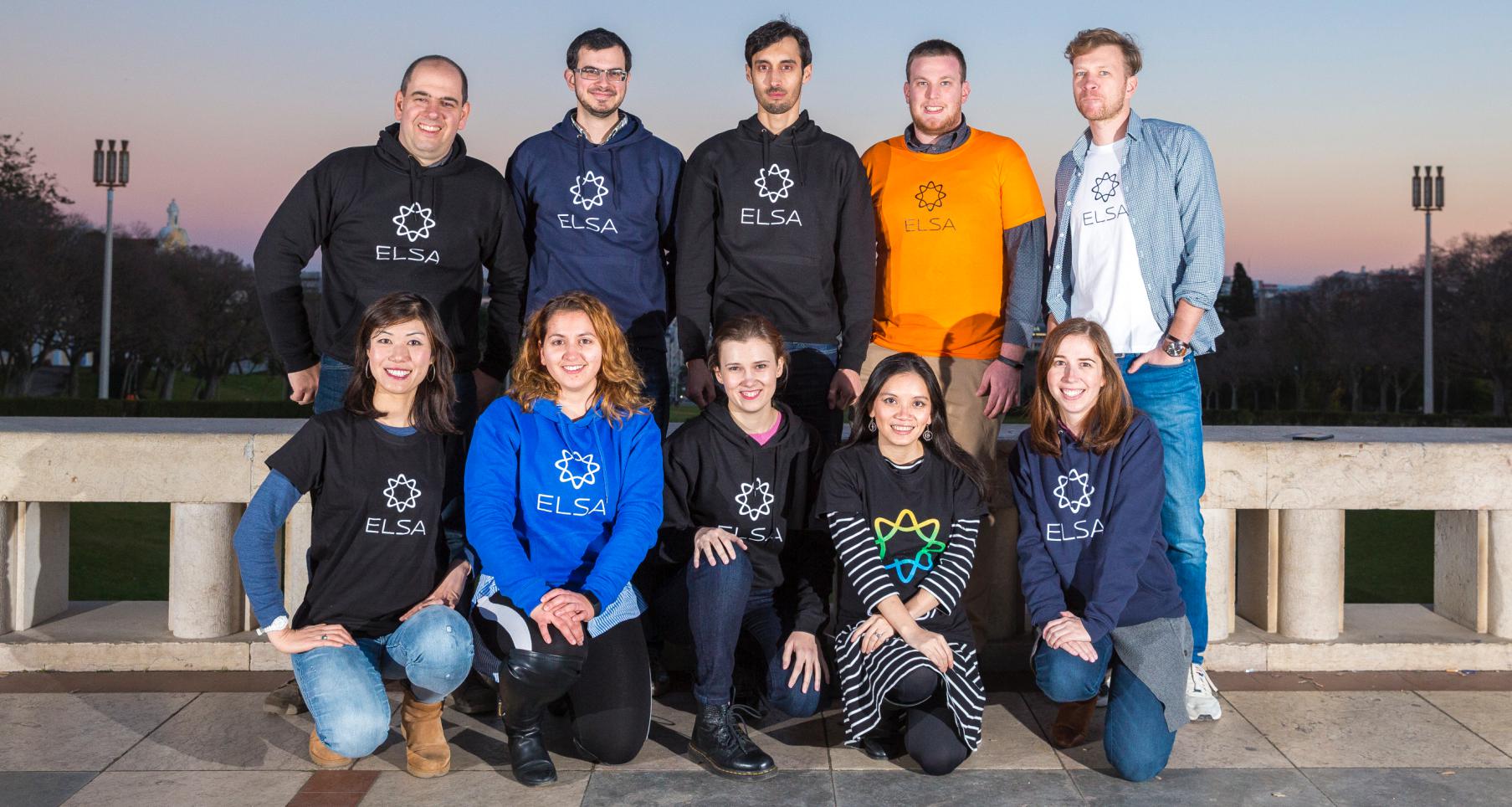Monk’s Hill Ventures
Auto Added by WPeMatico
Auto Added by WPeMatico
Indonesia’s logistics industry is very fragmented, with several large providers operating alongside thousands of smaller companies. This means shippers often have to work with a variety of carriers, driving up costs and making supply chains harder to manage. Logisly, a Jakarta-based startup that describes itself as a “B2B tech-enabled logistics platform,” announced today it has raised $6 million in Series A funding to help streamline logistics in Indonesia. The round was led by Monk’s Hill Ventures.
This brings the total Logisly has raised since it was founded last year to $7 million. Its platform digitizes the process of ordering, managing and tracking trucks. First, it verifies carriers before adding them to Logisly’s platform. Then it connects clients to trucking providers, using an algorithm to aggregate supply and demand. This means companies that need to ship goods can find trucks more quickly, while carriers can reduce the number of unused space on their trucks.
Co-founder and chief executive officer Roolin Njotosetiadi told TechCrunch that about “40% of trucks are utilized in Indonesia, and the rest are either sitting idle or coming back from their hauls empty handed. All of these result in high logistics costs and late deliveries.”
He added that Logisly is “laser focused on having the largest trucking network in Indonesia, providing 100% availability of cost-efficient and reliable trucks.”
Logisly now works with more than 1,000 businesses in Indonesia in sectors like e-commerce, fast-moving consumer goods (FCG), chemicals and construction. This number includes 300 corporate shippers. Logisly’s Series A will be used on growing its network of shippers and transporters (which currently covers 40,000 trucks) and on product development.
The startup’s clients include some of the largest corporate shippers in Indonesia, including Unilever, Haier, Grab, Maersk and JD.ID, the Indonesian subsidiary of JD.com, one of China’s largest e-commerce companies.
Other venture capital-backed startups that are focused on Indonesia’s logistics industry include Shipper, which focuses on e-commerce; logistics platform Waresix; and Kargo.
Powered by WPeMatico
GoGet, a Malaysian on-demand work platform, announced today that it has raised a $2 million Series A led by Monk’s Hill Ventures. The platform currently has 20,000 gig workers, who are called “GoGetters,” and has onboarded 5,000 businesses, including Lazada Malaysia, IKEA Malaysia, Foodpanda and flower delivery service BloomThis.
While Malaysia has other on-demand work platforms, including Supahands and Kaodim, each has its own niche. Supahands focuses on online tasks, while Kaodim offers professional services like home repairs, catering and fitness training. GoGet is more similar to TaskRabbit, with GoGetters performing errands or temp work like deliveries, moving large items, catering at events, data entry and office administration.
Chief executive officer and co-founder Francesca Chia founded GoGet in 2014. The startup decided to focus on gig workers because there is a labor gap in ASEAN (Association of Southeast Asian Nations) countries, she told TechCrunch.
“Today, the majority of ASEAN’s labor market are low- to middle-skilled, and the majority are not protected with job security, future career paths and financial services such as insurance and savings,” she said. “At the other end of the spectrum, over 70% of employment in ASEAN are from SMEs, who seek to scale without scaling full-time costs, and find it difficult to train and maintain a reliable pool of staff.”
GoGet wants to bridge the gap by connecting businesses with verified flexible workers, she added. GoGetters are able to switch between different categories of work, which Chia said gives the ability to learn new skills. Companies are provided with management features that include the ability to create a list of GoGetters they want to work with again and tools for recruiting, training and payment.
The Series A will be used to expand GoGet in Malaysia. One of the things many companies whose business models revolve around the gig economy need to grapple with as they scale include workers who are frustrated by uneven work, low pay and the lack of benefits they would receive as full-time employees. In California, for example, this has resulted in a political battle as companies like Uber, DoorDash and Lyft try to roll back legislation that would force them to classify more gig workers as full-time employees.
Chia said GoGet’s “vision is to bring flexible work to the world in a sustainable manner.” Part of this entails giving GoGet’s gig workers access to benefits like on-demand savings and insurance plans that are similar to what full-time employees receive. GoGet’s platform also has career-building features, including online trainings and networking tools, so workers can prepare for jobs that require different skill sets.
While GoGet’s short-term plan is to focus on growth in Malaysia, it eventually plans to enter other ASEAN countries, too.
In a press statement about the investment, Monk’s Hill Ventures co-founder and managing partner Kuo-Yi Lim said, “The nature of work is being redefined as companies and workers seek both flexibility and fit. This trend has been accelerated by the pandemic, as businesses are transforming in response and require more elastic workforce. GoGet provides a community of motivated and well-trained workers, but more importantly, its platform extends the corporate people management systems to ensure quality, compliance and seamless workflow.”
Powered by WPeMatico
Waresix, one of a handful of startups aiming to modernize logistics in Indonesia — the world’s fourth most populous country — has pulled in $14.5 million to grow its 18-month-old business.
This new investment, Waresix’s Series A, is led by EV Growth — the growth-stage fund co-run by East Ventures — with participation from SMDV — the investment arm of Indonesia corporation Sinar Mas — and Singapore’s Jungle Ventures . The startup previously raised $1.6 million last year from East Ventures, SMDV and Monk’s Hill Ventures. It closed a seed round in early 2018.
Waresix is aiming to digitize logistics, the business of moving goods from A to B, which it believes is worth a total of $240 billion in Indonesia.
A large part of that is down to the country’s geography. The archipelago officially has more than 17,000 islands, but there are five main ones. That necessitates a lot of challenges for logistics, which are said to account for 25-30% of GDP — a figure that is typically below 5% in Western markets — while Indonesia barely scraped the top 50 rankings in World Bank’s Logistics Performance Index.
But, as Southeast Asia’s largest economy and the key market for digital growth in the region, that makes this an attractive problem to solve… or, rather, attractive industry to modernize.
Like others in its space worldwide — which include Chinese unicorn Manbang and BlackBuck in India — Waresix is focused on optimizing logistics by making the process more transparent for clients and more efficient for haulage companies and truckers. That includes removing the chain of “middle man” brokers, who add costs and reduce transparency, and provide a one-stop solution for transportation by land or sea, as well as cold storage and general cargo handling.
As of today, Waresix claims a fleet of more than 20,000 trucks and over 200 warehouse partners across Indonesia. The company said it plans to use this new capital to expand that coverage further. In particular, that’ll include additional land transport options and additional warehouse capacity in tier-two cities and more remote areas. That’s a push that founders Andree Susanto (CEO) and Edwin Wibowo (CFO) — who met at UC Berkeley in the U.S. — believe fits with Indonesia’s own $400 billion commitment to improve national infrastructure and transport.

Waresix trucks
It is also consistent with East Ventures, the long-standing early-stage VC, which has backed a pack of young companies aiming to inject internet smarts into traditional industries in Indonesia. Some of that portfolio includes Warung Pintar, which develops smart street vendor kiosks, Kedai Sayur, which is digitizing street vendors, and Fore Coffee, which draws inspiration from China’s digital-first brand Luckin Coffee, which recently listed in the U.S.
Now with EV Growth, which reached a final close of $200 million thanks to LPs that include SoftBank, East Ventures has the firepower to write larger checks that go beyond seed and pre-Series A deals, as it has done with Waresix.
But the company is far from alone in going after the logistics opportunity in Indonesia. Its rivals include Kargo, which was started by a former Uber Asia exec and is backed by Uber co-founder Travis Kalanick’s 10100 fund among others, and Ritase.
Ritase, which claims to be profitable, closed an $8.5 million Series A this week. It said it has 7,500 trucks and, on the client side, some 500 SMEs and a smattering of well-known global brands. Kargo has kept its metrics quiet, but it is a later arrival on the scene. The startup only came out of stealth in March of this year when it announced a $7.6 million funding round.
Powered by WPeMatico
SalesWhale, a Singapore-based startup that uses AI to help marketers and salespeople generate leads, has announced a Series A round worth $5.3 million.
The investment is led by Monk’s Hill Ventures — the Southeast Asia-focused firm that led SalesWhale’s seed round in 2017 — with participation from existing backers GREE Ventures, Wavemaker Partners and Y Combinator. That’s right, SalesWhale is one a select few Southeast Asian startups to have been through YC, it graduated back in summer 2016.
SalesWhale — which calls itself “a conversational email marketing platform” — uses AI-powered “bots” to handle email. In this case, its digital workforce is trained for sales leads. That means both covering the menial parts of arranging meetings and coordination, and the more proactive side of engaging old and new leads.
Back when we last wrote about the startup in 2017, it had just half a dozen staff. Fast-forward two years and that number has grown to 28, CEO Gabriel Lim explained in an interview. The company is going after more growth with this Series A money, and Lim expects headcount to jump past 70; SalesWhale is deliberating opening an office in California. That location would be primarily to encourage new business and increase communication and support for existing clients, most of whom are located in the U.S., according to Lim. Other hires will be tasked with increasing integration with third-party platforms, and particularly sales and enterprise services.
The past two years have also seen SalesWhale switch gears and go from targeting startups as customers, to working with mid-market and enterprise firms. SalesWhale’s “hundreds” of customers include recruiter Randstad, educational company General Assembly and enterprise service business Unit4. As it has added greater complexity to its service, so the income has jumped from an initial $39-$99 per seat all those years ago to more than $1,000 per month for enterprise customers.

SalesWhale’s founding team (left to right): Venus Wong, Ethan Lee and Gabriel Lim
While AI is a (genuine) threat to many human jobs, SalesWhale sits on the opposite side of that problem in that it actually helps human employees get more work done. That’s to say that SalesWhale’s service can get stuck into a pile (or spreadsheet) of leads that human staff don’t have time for, begin reaching out, qualifying leads and sending them on to living and breathing colleagues to take forward.
“A lot of potential leads aren’t touched” by existing human teams, Lim reflected.
But when SalesWhale reps do get involved, they are often not recognized as the bots they are.
“Customers are often so convinced they are chatting with a human — who is sending collateral, PDFs and arranging meetings — that they’ll say things like ‘I’d love to come by and visit someday,’ ” Lim joked in an interview.
“Indeed, a lot of times, sales team refer to [SalesWale-powered] sales assistant like they are a real human colleague,” he added.
Powered by WPeMatico
The internet is often lauded for the potential to increase the impact of a range of primary services in emerging markets, including education, commerce, banking and healthcare. While many of those platforms are now being built, a few are finding that a hybrid approach combining online and offline is advantageous.
That’s exactly what Jio Health, a “full stack” (forgive the phrase) healthcare startup is bringing to consumers in Southeast Asia, starting in Vietnam.
The company started as a U.S.-based venture that worked with healthcare providers around the “Obamacare” initiative, before sensing the opportunity overseas and relocating to Vietnam, the Southeast Asian market of 95 million people and a fast-growing young population.
Today, it operates an online healthcare app and a physical facility in Saigon; it also has licenses for prescriptions and over the counter drug sales. The serviced launched nearly a year ago; already the company has some 130 staff, including 70 caregivers — including doctors — and a tech team of 30.
The idea is to offer services digitally, but also provide a physical location for when it is needed. Therein, the company ensures that “every element of that journey” is controlled and of the required standard; that’s in contrast to services that partner with hospitals or other care centers.
The scope of Jio Health’s services range from pediatrics to primary care, chronic disease management and ancillary services, which will soon cover areas like eye care, dermatology and cancer.
“Our initial research [before moving] found that healthcare in Vietnam was unlike the U.S.,” Raghu Rai, founder and CEO of Jio Health, told TechCrunch in an interview. “Spending is primarily driven by the consumer (out of pocket) and there’s no real digital infrastructure to speak of.”
Rai — a U.S. citizen — said doctors typically “have minutes per patient” and get through “hundreds” of consultations in every morning shift. That gave him an idea to make things more efficient.
“We can probably address north of 80 percent of consumers’ health needs,” he said of Jio Health,” but we also have referral partnerships with certain hospitals.”

Raghu Rai is CEO and founder of Jio Health
The process begins when a consumer downloads the Jio Health app and inputs primary information. A representative is then dispatched to visit the consumer in person, potentially within “hours” of the submission of information, according to Rai.
He believes that Jio Health can save its users money and time by using remote consultancy for many diagnoses. The company also works with health insurance companies for areas like annual checkups, and Rai said that McDonald’s and 7-Eleven are among the corporations that offer Jio Health among the providers for their staff; they’re not exclusive.
This week, Jio Health announced that it has closed a $5 million Series A funding from Southeast Asia’s Monk’s Hill Ventures . Rai said the company plans to use the capital for expansion. In particular, he said, the company is adding new care categories this month — including eye care and dermatology — and it is working toward expanding its brand through marketing.
Further down the line, Rai said the company hopes to expand to Hanoi before the end of this year. While there is interest in moving into other markets within Southeast Asia, that isn’t about to happen soon.
“We have begun to investigate other markets, but at this point feel the market in Vietnam is substantial in itself,” he told TechCrunch. “It’s very plausible that we’d be looking at international expansion plans in 2020… we’re going to be focused on Southeast Asia.”
Powered by WPeMatico
Google’s Gradient Ventures, the search giant’s dedicated AI fund, is casting its eye to Asia after it led a $7 million Series A round for Elsa, a startup that operates an app for English language learners.
The deal is Gradient’s first in Asia, and it includes participation from existing investors Monk’s Hill Ventures and SOSV. Elsa has now raised $12 million to date.
Elsa was founded in 2015 as a way to help non-English speakers improve their accent and general speaking ability. Vu Van, CEO and one half of the founding team, is a Vietnamese national who, despite being fluent in English, struggled to be understood after moving to the U.S. to study and then work. Together with speech recognition researcher Dr. Xavier Anguera — the startup’s CTO who leads its Portugal-based tech team — Van started Elsa to help people in the same predicament.
“I was very good at grammar, reading and writing but I realized people had a hard time understanding me because I had a very strong accent and my pronunciation wasn’t proper,” Van, who is based in San Francisco but travels extensively, told TechCrunch in an interview. “This impacts confidence when you apply for jobs or are even just meeting friends.”
“There are so many English learning solutions but they are mostly focused on expanding vocabulary or grammar, very few deal with pronunciation,” she added.
Elsa uses voice recognition and AI to grade a user’s speaking versus standard American English (and I thought us Brits were the global standard…) giving them a score at the end. That helps track their progress, while it focuses on pronunciation with a detailed review on how a user is speaking.
The service uses a freemium model that grants users full access to 1,000 courses for around $3-6 per month depending on the length of the package they select. That ranges from one month of access to 12 months. New content is added every week, Van said.

With this money in the bag, Elsa is going after growth in a number of its most promising markets.
The service has users in more than 100 countries, but Vietnam is its top market, with two million paying users. Partly because it is Van’s home market, Elsa has doubled down on Vietnam with a local sales team and localized payments, including the likes of bank transfers and local wallets.
That’s the blueprint for expansion in its next three target countries: Japan, Indonesia and India. Elsa has opened an office in Tokyo and is planning to introduce more localized content for Japanese users. Similar efforts will happen in Indonesia and India, where Van said the app sees strong engagement and downloads without any paid marketing efforts.
Elsa is also working on expanding its content from English to include other languages. Spanish is currently on the horizon and the company is already preparing the back-end technology to make it possible.
“We have to build the voice recognition technology to recognize those languages accurately. We have the infrastructure but now just need to collect voice data to train the model,” explained Van.

Vu Van started Elsa in 2015 with Dr. Xavier Anguera to help non-English speakers improve their accent and general speaking ability.
Beyond geographic expansion, Elsa is also going after schools and classrooms. Already, in Vietnam, it is working with a handful of schools that have added the app to their classroom work. The company allows schools to upload their specific content or curriculum to Elsa to make it part of a student’s homework or assessment. Teachers can see if a student has completed oral homework, and the app grades their efforts.
“We want to help these teachers help their students,” Van said. “Even with the best intentions, they simply can’t teach speaking.”
The model for the education push sees schools pay a licensing fee per student, which Van said is subsidized, while uploading their content is free.
Snagging investment from Gradient is a notable achievement for Elsa, but it will also allow the startup to tap into the company’s talent, too. That’s because Gradient operates a rotational program that allows Google employees to spend three to six months working at portfolio startups on secondment. That process hasn’t kicked off for Elsa just yet, but Van is hopeful of securing an engineer who might otherwise be prohibitively expensive for her company.
Gradient Ventures was founded in 2017 and this deal is the fund’s 18th, according to Crunchbase. Its previous investments include Canvass Analytics and Test.ai.

The Elsa team
Powered by WPeMatico